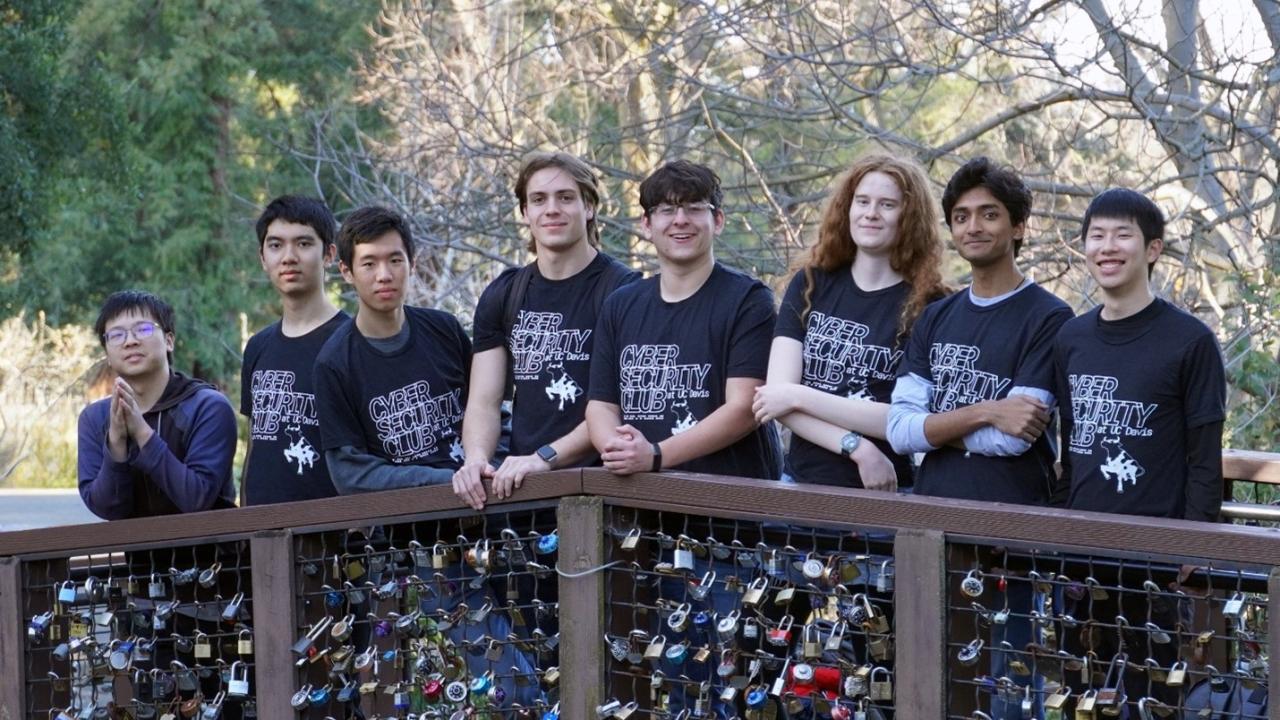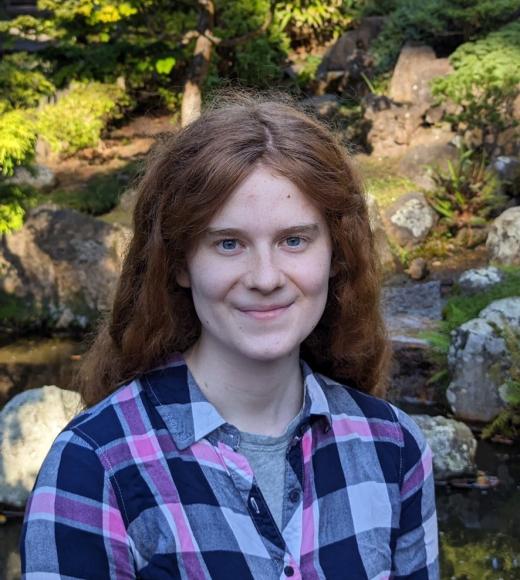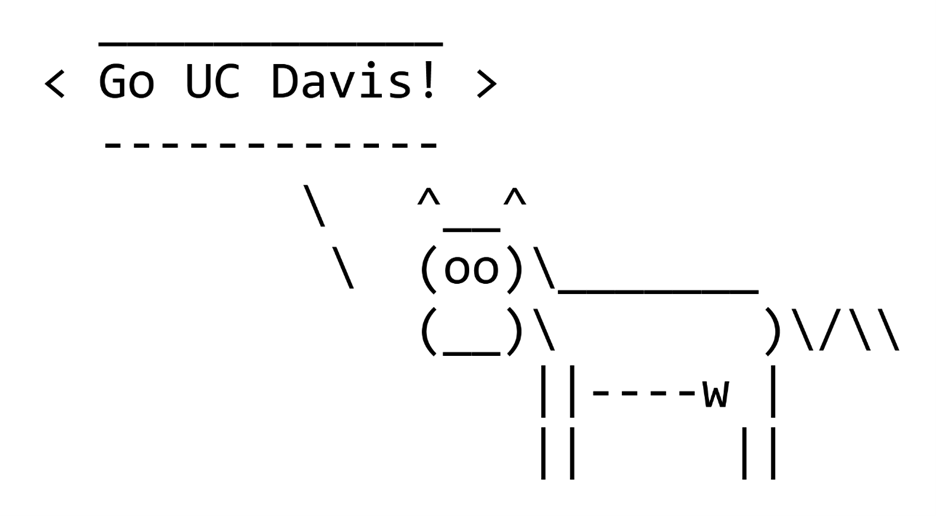
Blog: Leading the Next Generation of Cybersecurity Professionals
With no possibility of meeting in person, many competitive student teams were relegated to limbo at the height of the COVID-19 pandemic. The Cyber Security Club at UC Davis was one of them. The 100% student-led team has since rebuilt its competitive arm, and its president, Ashley Bilbrey, has concentrated efforts toward building the team, conducting workshops and facilitating learning while sharing a passion for cybersecurity with fellow members.
As the team makes its way down to Anaheim for a cyber defense competition, Bilbrey reflects on the difficult and rewarding journey the club has taken so far.

I'm Ashley Bilbrey, and I am graduating from UC Davis this spring with a Bachelor of Science in computer science. As president of the Cyber Security Club at UC Davis, I hope to inspire students with the same passion I have for the field and create the next generation of cybersecurity professionals.
Cybersecurity is one of my biggest passions because it combines my love of computers and technology with my life's goal of helping people. To help bring our technologies and communities into the future, we must protect our systems from attackers.
With some reflection, I have found that I can accomplish a limited amount of good by myself. However, I have learned I can lead others by inspiring them to work together and accomplish big goals.
Cybersecurity is a fascinating and in-depth field that can be difficult to approach for a newcomer. However, jobs in cybersecurity, particularly in Information Technology, are in demand. Encouraging students to grow in cybersecurity and close this gap has involved a combination of competition and group learning.
Inspiring through Competition
One of the best ways to inspire students to grow their cybersecurity skills has been through competition. Our club's most skilled members compete against other institutions and cyber teams across the globe. We never walk away from an event without having learned something new. In preparation for these competitions, we honed our skills individually and collaboratively to increase our success.
This academic year, our competitive team competed in the online regional qualifier in the Western Regional Collegiate Cyber Defense Competition, or WRCCDC. Competing against 22 other teams, we reached the top eight, qualifying us to compete in the regional final round this April in Anaheim, California.

The WRCCDC is a competition where teams receive a simulated corporate network. Team members must work together to keep different services, such as websites and email, up and running. Meanwhile, real-life hackers are trying to attack the network. We have participated in multiple practice rounds, including winning one WRCCDC invitational round. Members have also been building lab networks to practice running and defending them.
Another form of competition we participate in is Capture the Flag. These cybersecurity competitions typically have a variety of puzzle-like challenges of various categories, such as encryption or forensics.
Our team also hosted one of these competitions last summer, during which a new beginners-focused challenge was released each week over the course of the entire summer.
Leading through Collaboration
The Cyber Security Club at UC Davis hosts one of the highest frequency of workshops in a student organization on campus, with one per week during the academic year. These workshops aim to be engaging and insightful, and any student is welcome to attend.
Like a research conference, we send out a call for speakers and encourage our members to share what they have learned in a workshop. We hope this inspires even more members to explore topics within cybersecurity that they are enthusiastic about. Over 25 of our previous workshops are available to the public. By allowing anyone to learn from our workshops, we can have a wider impact across the globe.
We also host a variety of speakers for our students to learn from and stay connected to research and industry. We have had computer science professor Matt Bishop — our faculty advisor and recent inductee to the Cyber Security Hall of Fame— discuss his research with us. Micah Lee, director of information security for The Intercept, spoke about his new book, "Hacks, Leaks, and Revelations," on analyzing hacked and leaked information.
We have also hosted speakers from large security companies, such as Mandiant. I hope speakers like these inspire students to see the variety of specialties and career opportunities within cybersecurity.
I hope my work inspiring a new generation of cybersecurity professionals will make the world more secure. I want service projects, such as cybersecurity education campaigns for the community and the development of software that ensures our online communities are safer, to continue.
Thanks to Professor Bishop for being our faculty advisor and for his continued support of the club. Thanks to the Student Startup Center and director Aaron Anderson for providing space for our computer equipment to build our practice networks.
A personal thank-you goes out to Lee Miller, a neuroscience professor at the Center for Mind and Brain, and computer science professor and department chair Dipak Ghosal for supporting me on my journey throughout UC Davis.
